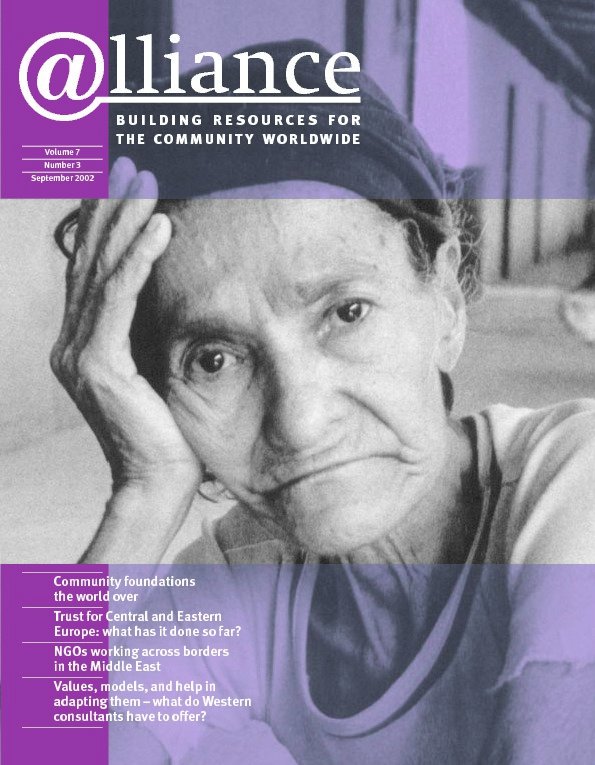Development, NGOs, and Civil Society is a selection of very sharp essays, all previously published in the journal Development in Practice, which analyse the tensions inherent in the role currently played by NGOs. On the one hand, NGOs have benefited increasingly from taking a service delivery role. On the other, they are portrayed by official agencies as a medium to promote political pluralism. In the introduction Jeanny Pearce asks whether they truly stand for anything fundamentally different from the agencies on whose largesse they increasingly depend.
The contributors raise some striking issues. Deborah Eade suggests that NGOs may successfully adapt to a changing market in terms of ensuring a continued supply of funds, but at the expense of genuinely facilitating social change or representing real alternatives to the dominant paradigm. Michael Edwards and David Hulme warn that NGOs may become more accountable to the official donors than to their intended beneficiaries. These fears are reflected in Latin America, where we see NGOs becoming increasingly dependent on state and bilateral funding and their status changing from development NGOs to contractors or consultants.
Stephen Commins questions the role of northern NGOs in a globalized world: are they going to be part of the aid industry or can they develop alternative development models? A collective discussion would be a starting point in building new partnerships among themselves. This is a very important point since agencies are spending huge amounts of money in some southern countries without any common agenda or coordination, and without any strategic approach behind the selection of projects and assignment of resources.
Firoze Manji demands greater reflection by northern NGOs on the nature of their relationship with their southern counterparts, which may be actually hampering rather than enhancing common goals, like eliminating poverty and injustice. The dialogue between northern and southern NGOS seems to have lost much of the quality and sense of partnership it had in the past. The number of conditionalities imposed by northern NGO is increasing, related not only to their definition of priority areas but also to the specific approach to be developed and management styles.
I share Mike Moore and Sheelagh Stewart’s worries about the problem of accountability and the need for collective self-regulation and transparency in order to re-establish public confidence. NGOs should draw up a code of conduct in each country and publish regular information about the money they receive and the way it is spent.
Sarah White puts forward some sound arguments on the uses and abuses of the concept of participation. Participation means a change in power relationships, but for the multilateral organizations and many foundations and NGOs almost any agreement is labelled as an ‘alliance’, and any form of involvement of beneficiaries in a project is automatically called ‘participation’ – even though the ability of the ‘participants’ to take major decisions or change the rules is totally restricted.
Development, NGOs, and Civil Society is an important contribution. Collective debate on the new role of NGOs in issues like development and the struggle against poverty is urgently needed.
Mariano Valderrama is a researcher at CEPES (Peruvian Centre for Social Studies) and a member of the Management Comittee of The Reality of Aid. He can be contacted on +51 1 433 6610 or at Mariano@cepes.org.pe
Development, NGOs, and Civil Society
Edited by Deborah Eade Oxfam £9.50 /$15.95
To order, contact Oxfam Publishing.
Fax +44 1865 313 713
Email publish@oxfam.org.uk






Comments (0)